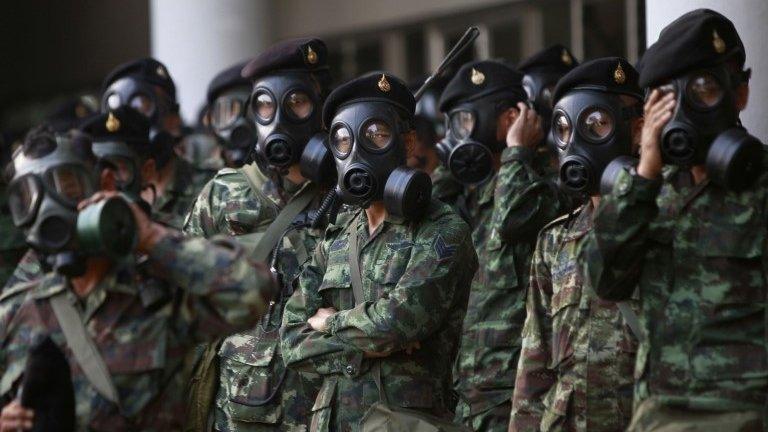Thailand protesters 'promise not to obstruct voting'
- Published
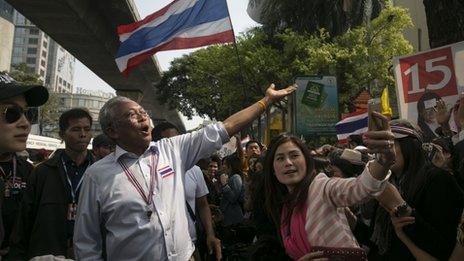
Suthep Thaugsuban and his backers have been protesting since November
Thai protest leader Suthep Thaugsuban has promised that his supporters will not obstruct advance voting for next week's general election.
Mr Suthep says protesters will not try to stop people from casting their ballots from Sunday, but will demonstrate outside polling stations.
They want the PM to step down and the political system to be reformed.
But the government says the vote will go ahead, despite a Constitutional Court ruling that it can be delayed.
A state of emergency is in place as the authorities struggle to cope with the unrest.
Outbreaks of violence
Protesters, who started their campaign in November, want to install an unelected "people's council" to run the country until the political system is changed.
They say PM Yingluck Shinawatra's government is being influenced by her brother, exiled former leader Thaksin Shinawatra.
At least nine people have died since the wave of protests started last year.
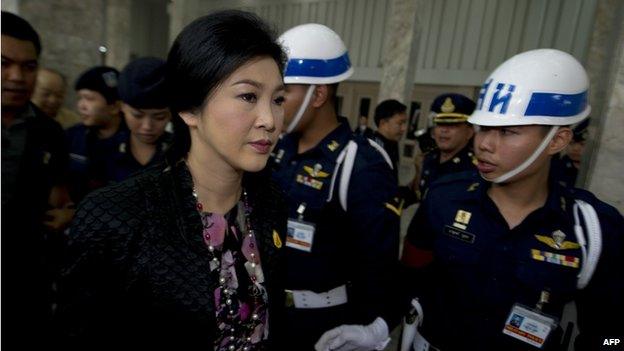
Ms Yingluck's party enjoys significant support from rural voters
Both the pro-government "red shirt" activists and the anti-government protesters have blamed each other for outbreaks of violence.
Mr Suthep said that although his followers would not disrupt early voting due to begin on Sunday, they would demonstrate outside each of Bangkok's 50 polling stations.
"We will persuade everyone in front of polling stations to jointly reform Thailand instead of exercising their voting rights," Thailand's Bangkok Post, external quoted him as saying.
The election commission said more than two million people had registered to vote early. Those eligible include students and migrant workers who are unable to return home on election day.
The electoral commission and the main opposition party, the Democrats, have called on the government to delay the polls, saying the current unrest makes conducting free and fair elections too difficult.
The Constitutional Court ruled that the polls scheduled for 2 February can be legally postponed - but that any delay must have the agreement of the election commission and the prime minister.
But the government insists elections should go ahead as planned.
Ms Yingluck's Pheu Thai party commands significant support, especially with rural voters, and is seen as likely to win the polls.
The opposition, which resigned from parliament in December, has said it would boycott the elections.
On Tuesday, the government imposed a 60-day state of emergency in Bangkok and surrounding provinces. The decree gives the government the power to control crowds and censor media, but its enforcement has remained unclear.
Protests started after Thailand's lower house passed a controversial amnesty bill which critics said could allow former PM Thaksin Shinawatra to return without serving time in jail.
Pro-government supporters have mostly stayed away from the latest protests but observers fear further violence if they decide to take to the streets.
Meanwhile, Ms Yingluck is also being investigated by Thailand's anti-corruption body in connection with a controversial government rice subsidy scheme - a move that could potentially force her from politics.
- Published22 May 2014
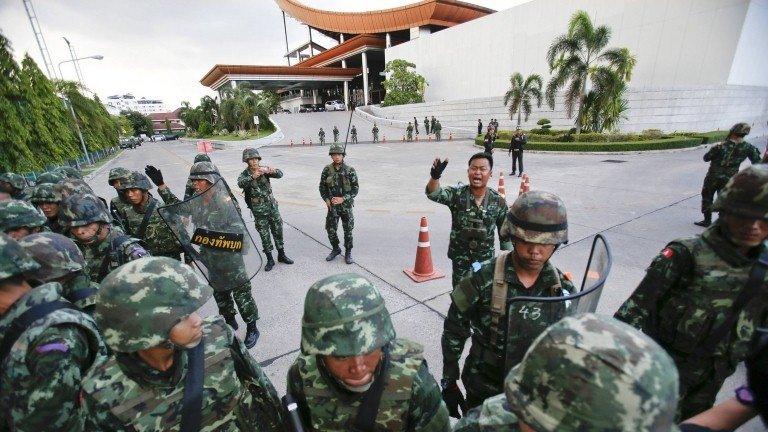
- Published22 January 2014
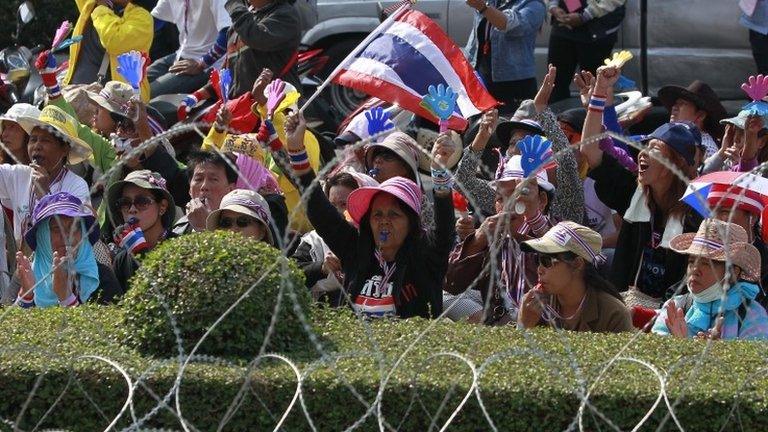
- Published21 January 2014
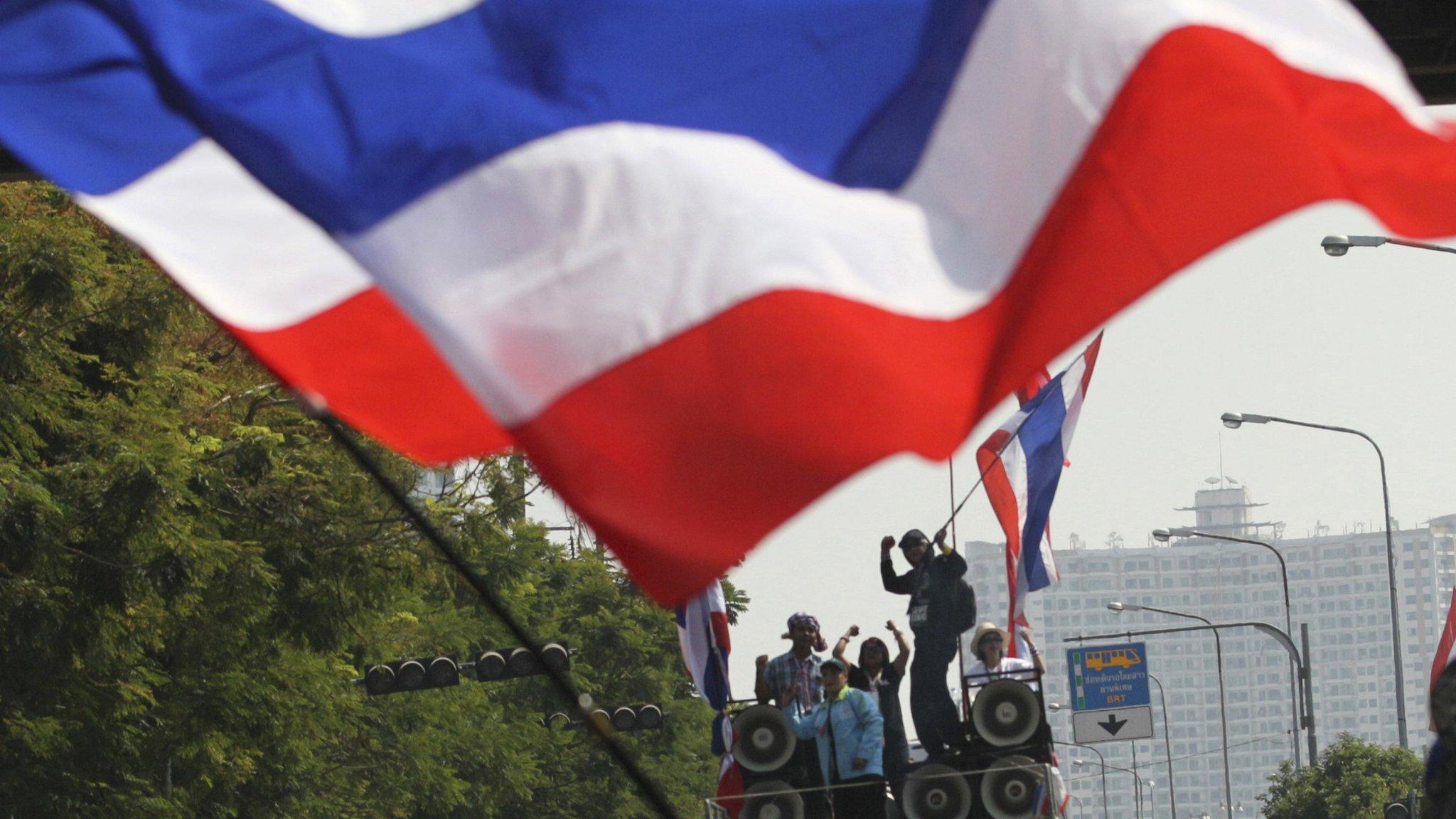
- Published19 January 2014
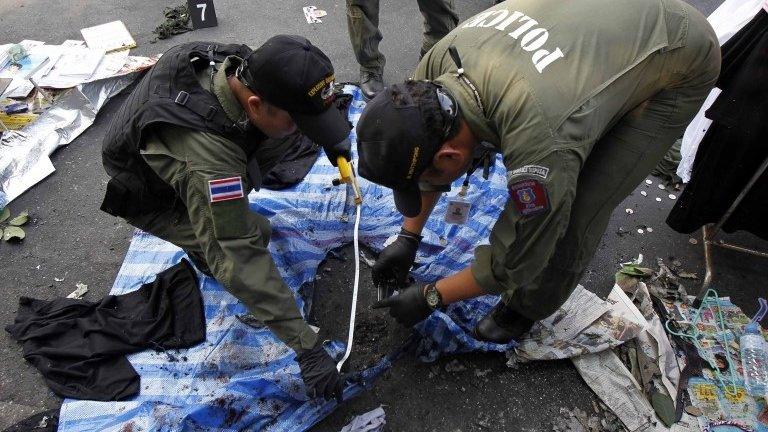
- Published13 January 2014
- Published23 August 2017
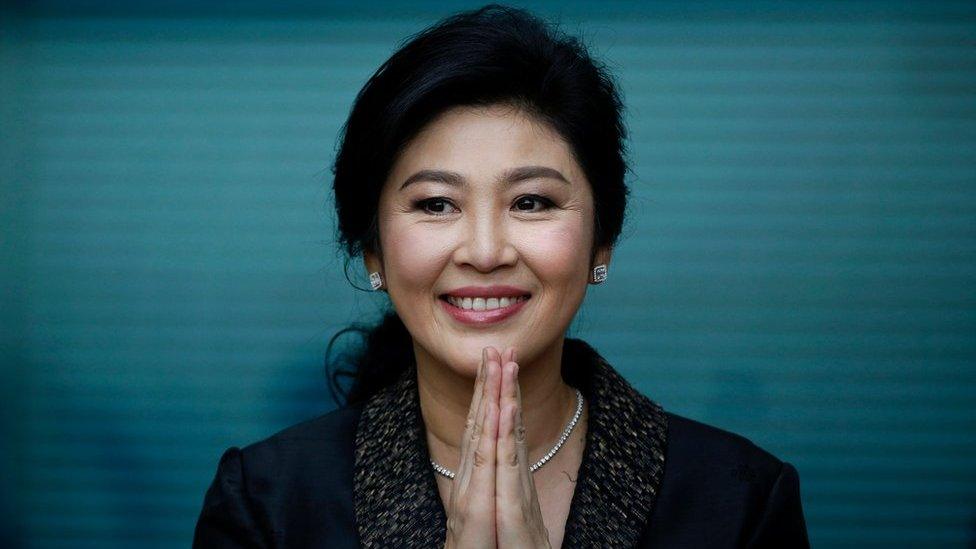
- Published8 January 2014
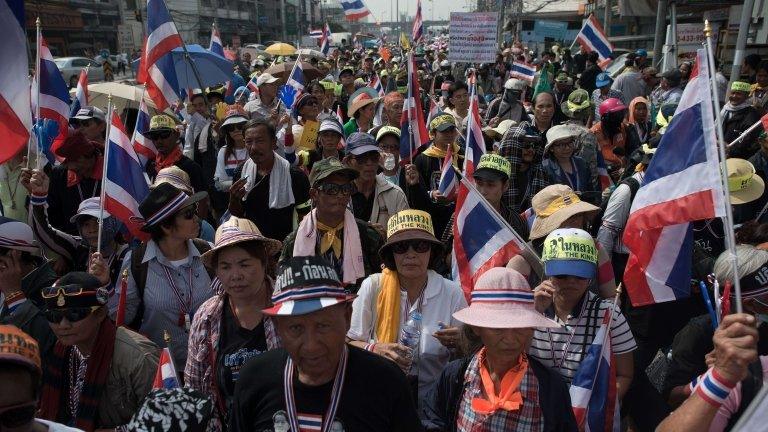
- Published27 December 2013
